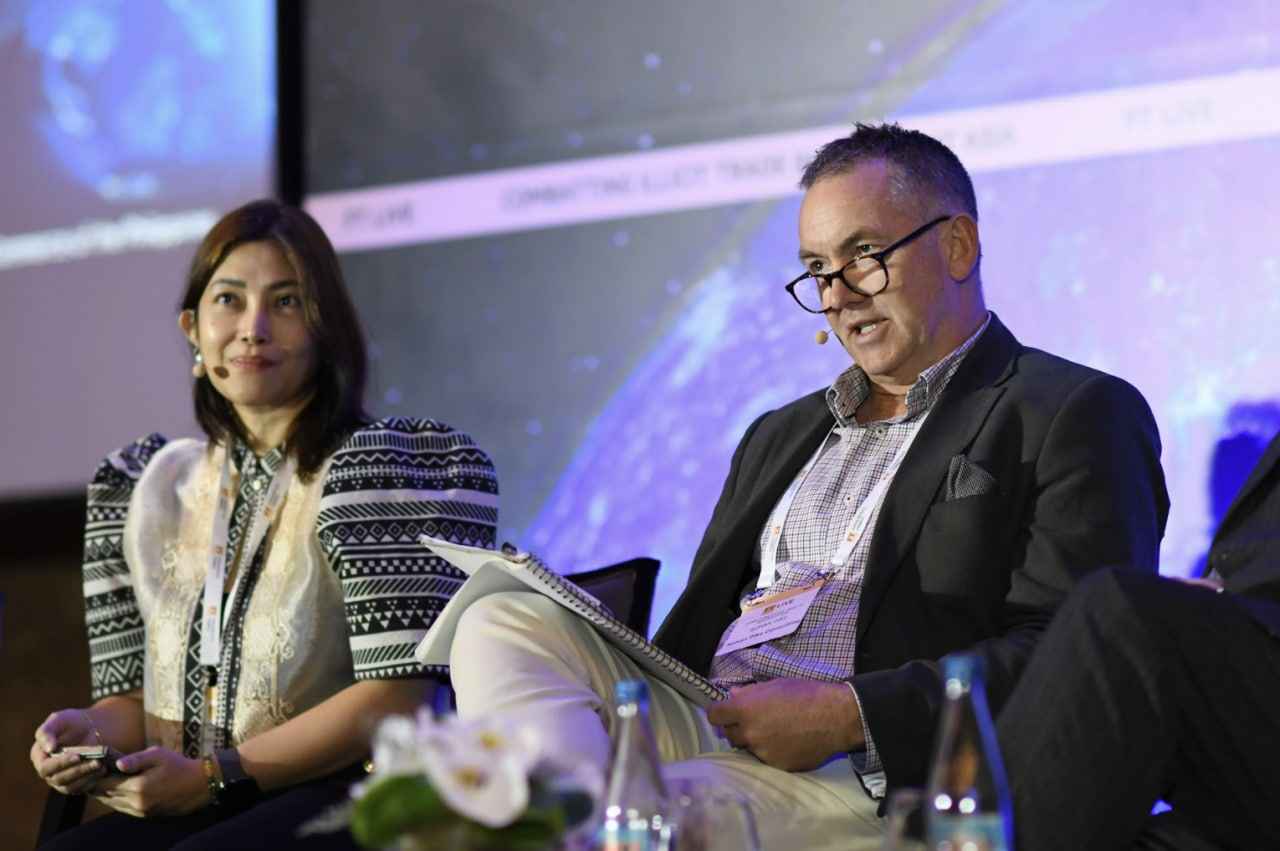Kathyrin Fe D. Pioquinto and Rohan Pike
Experts raised alarms about the maritime security risks that illicit trade poses in Southeast Asia.
They issued the warning at “Combatting Illicit Trade in Southeast Asia”, a high-level briefing organized by the Financial Times at the Shangri-La The Fort, Manila, in Taguig City, on Aug. 5, 2025.
Countries should work together to prevent illicit trade, which leads to other crimes, said said Daniele Marchesi, country manager of the United Nations Office on Drugs and Crime (UNODC) Programme Office in the Philippines.
“Illicit trade is not merely about counterfeit goods and lost revenue; it drives illicit financial flows that fuel transnational organized crime,” said Marchesi.
Michael Eric Castillo, president and CEO of local think tank CAPS and Partners Inc. (CAPS), agreed that illicit trade poses a threat to maritime security in Southeast Asia.
“Enforcement agencies in Indonesia, Malaysia, Thailand and the Philippines should work together, share information, and coordinate response to detect suspicious activities and prevent the entry of illicit goods,” said Castillo, who is a former undersecretary and deputy director general for operations of the National Security Council.
Citing the country’s porous maritime borders, Castillo stressed the urgent need to strengthen the maritime law enforcement capability of the Philippine Coast Guard and the Philippine National Police Maritime Group.
Nestor Sanares, Undersecretary for Peace and Order at the Department of Interior and Local Government, called for government-to-government cooperation among Southeast Asian countries to intercept contraband, noting that smuggling is a transnational crime that happens across borders.
Three factors driving illicit trade in Southeast Asia are high excise taxes on tobacco and alcohol, a lack of intellectual property (IP) protection, and weak enforcement, according to Chris Humphrey, executive director of the EU-ASEAN Business Council.
“Taxation regimes that are too high, too complex, and multi-tiered…create, essentially, money to be made [by illicit traders],” Humphrey said.

He cited the case of Malaysia, which he said hiked its tobacco taxes significantly to boost revenues and cut smoking – a policy that yielded the opposite effect.
“Government revenues went down. Illicit trade went through the roof…[accounting for] more than 60 percent of the market because of the profit margin that was created,” he said.
While a new strategic plan for ASEAN regional integration emphasizes reviewing IP laws, Humphrey said that everything ultimately boils down to enforcement.
“Regional authorities often lack resources, but another factor is that the penalties are not tough enough,” he said. “Most of the perpetrators who are apprehended are low-level criminals, not the people running these illicit businesses.”
Rohan Pike, an investigative consultant and a former officer at the Australian Border Force, said illicit trade grew significantly in Australia after the government imposed an 800 percent increase in tobacco excise taxes. He revealed that the Australian government formed a technical task force that consulted with other Asian countries, but these efforts were not sustained.
Pike said customs would only stop a certain percentage of goods coming through. “If there’s a tsunami of goods coming across the border, then there needs to be extra enforcement post-border,” he said
Pike said illicit trade in Australia now accounts for more than 50 percent of the market, and government revenues have declined by 60 percent over the last five years. Illicit trade has become so profitable that illicit traders are diversifying into other commodities and are likely corrupting border officials, he said.
“Violence against legitimate tobacco shopkeepers has increased. Cheap illicit cigarettes, costing $8 to $10 per packet compared to $50 to $60 per packet of legitimate cigarettes, are easily available and a lot more attractive for consumers, especially younger age groups. So, it’s a disaster on every level,” said Pike
Many of the nearly 900 members of the European Chamber of Commerce of the Philippines (ECCP) are deeply affected by illicit trade, according to Kathyrin Fe Pioquinto, ECCP director for advocacy and government affairs.
Pioquinto revealed that the ECCP and the Joint Foreign Chambers have submitted position papers to the Department of Finance on the government’s new policy regarding pre-border technical verification and cross-border electric invoicing for all imports. The Philippines can lead by connecting tools and coordinating regionally, she said.



















